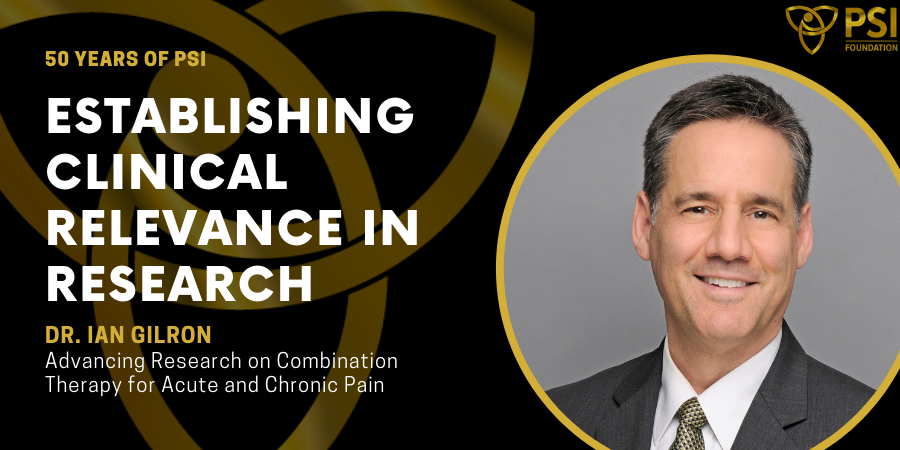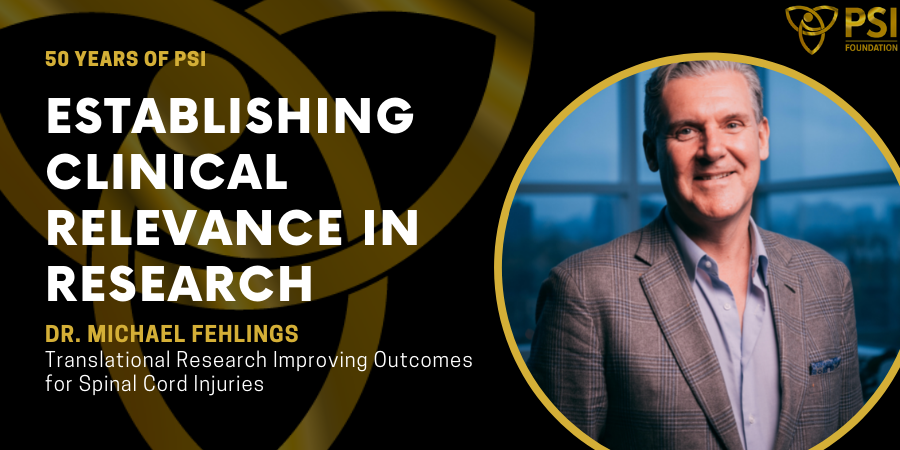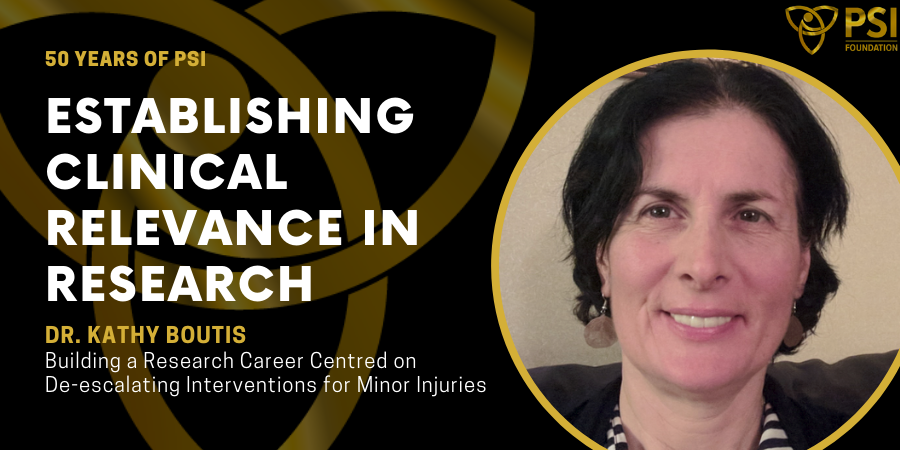“PSI funds a diversity of different types of clinical research – the whole gamut of medical and surgical specialities. It’s amazing what PSI has been able to accomplish in so many different areas.” – Dr. Ian Gilron
Dr. Ian Gilron, an anesthesiologist at Kingston Health Sciences Centre and professor at Queen’s University, credits PSI Foundation funding for advancing his team’s research on combination therapy for acute and chronic pain. “When I was first getting involved in this field more than 25 years ago, pain management was such a big area of clinical need and there were lot of unanswered research questions,” says Dr. Gilron. “That continues to be the case, although we have made much progress.”
Pain helps to protect the body and alerts it to harm, and because of this important role many different neural pathways transmit pain. As a result of the many mechanisms involved, treating pain is challenging. A single pain drug by itself is unlikely to be highly effective for many patients, but rather combinations of treatments that target different pathways are often used.
Dr. Gilron has focused his team’s research program on evaluating drug combinations to treat both acute and chronic pain. “The first three project grants we got from PSI absolutely advanced the field in understanding multimodal drug therapy for acute pain, and a lot of those principles are also being applied in chronic pain,” he says. “The work funded by PSI has really helped advance that field.”
In particular, Dr. Gilron’s PSI-funded research has focused on understanding the treatment and impact of movement-evoked pain after surgery. His research suggested that movement-evoked pain may have different mechanisms than pain at rest, and it often does not respond to opioids in the same way as pain at rest.
His first three PSI Foundation grants funded single-centre clinical trials of drug combinations to treat movement-evoked pain after abdominal surgery: a study comparing a two-drug combination of rofecoxib and gabapentin to either drug alone, a study comparing meloxicam and gabapentin together to either drug alone, and a study comparing a triple combination of acetaminophen, meloxicam and gabapentin to any two of the drugs together. In each study, pain levels and other measures of physical function were improved with combination treatment at various timepoints after surgery.
New research is evaluating antioxidant’s effectiveness for pain
At the same time as Dr. Gilron was leading this work in acute pain, he was also conducting proof-of-concept clinical trials of drug combinations for chronic pain.
These clinical trials were published in high-impact journals, including The Lancet and The New England Journal of Medicine, and Pain, and they all showed that the combination therapies being evaluated were more effective than any one of the drugs alone. “The improvement we observed with the combination was statistically significant, but it was a moderate improvement. We were hoping for more,” says Dr. Gilron. He adds that the side effects of each drug being tested, particularly the sedative effects, limited the dosages and, therefore, the added effectiveness of the combination therapies.
His most recent research is evaluating a possible treatment that has no sedative side effects, making it an ideal “partner” to combine with other pain drugs that do have this sedative effect. Recent studies have suggested that the antioxidant alpha-lipoic acid relieves pain in nerve conditions such as diabetic neuropathy without a sedative effect, and it could potentially be used in combination therapy for other chronic pain conditions such as fibromyalgia.
Building on this previous work and the need to identify new non-sedating chronic pain treatments, in 2015, Dr. Gilron received PSI funding for a proof-of-concept clinical trial studying the effects of alpha-lipoic acid on pain relief in fibromyalgia. The results, recently published in Pain, did not suggest that alpha-lipoic acid is an effective treatment for fibromyalgia in most patients, although there was a trend for pain reduction in male patients with fibromyalgia. As such, this trial represented an important step in research to identify new treatments for chronic pain.
“PSI is willing to take chances on new ideas. It is very focused on funding high quality research and skilled investigators, so they don’t take a risk in that perspective, but certainly it is willing to support new ideas and innovation,” says Dr. Gilron. “For PSI to keep our combination research program advancing for so many years then give us the opportunity to bring our research in a whole new direction is something quite unique.”




